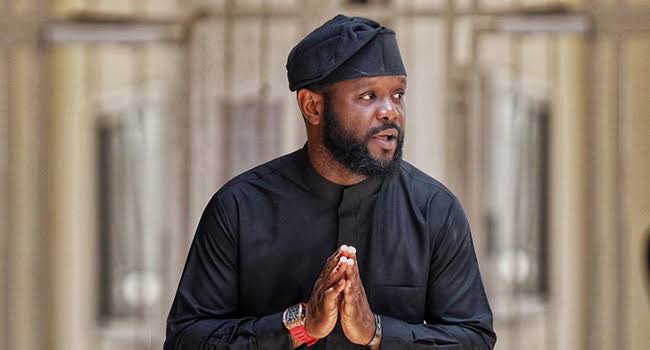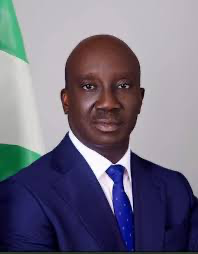In a society often overshadowed by performative gestures, true empathy feels increasingly rare. Nigeria’s political elite is no stranger to orchestrated public displays and carefully crafted photo opportunities. But sometimes, a quiet moment of sincerity slices through all that noise. That was exactly what happened when Seyi Tinubu, the son of President Bola Ahmed Tinubu, showed heartfelt support to Yusuf Buhari, the son of the late former President Muhammadu Buhari.
The loss of a father—especially one so prominent—is not something easily understood by outsiders. Public attention can make grief feel like a performance. Many choose to stay behind curated statements and polite, public-facing condolences. But Seyi chose a different path, one that stood out for its honesty and humility.
Rather than stay at a distance or hide behind formalities, he showed up. His presence wasn’t loud. It wasn’t a headline-grabbing affair. Yet, it echoed more deeply than any media soundbite could have. While others might have sent representatives or short, cold messages, Seyi decided to stand by Yusuf personally. That decision made a world of difference.
Their meeting wasn’t orchestrated for the cameras. No microphones or lights hovered nearby. What took place was human—quiet, respectful, and powerful. Seyi offered not just words but presence. He offered strength without speaking over sorrow. In doing so, he gave something many overlook in moments like this—genuine companionship.
In elite Nigerian circles, where relationships often feel transactional, this moment was striking. Political families frequently exist in perceived rivalry or careful distance. Every move is scrutinized. Every interaction can be interpreted as strategic. But there was nothing strategic about Seyi’s gesture. It was simply kind.
This act is a lesson. Leadership does not always have to be loud or on display. True character reveals itself in private, unforced moments. What Seyi did was not just a son comforting another. It was a leader acting with compassion.
Nigerians are used to statements written by aides and tweets managed by PR teams. So, this moment broke that pattern. People noticed. Not because it was shared widely, but because it wasn’t. That silence gave it power.
The bond between Seyi and Yusuf shows that the sons of leaders can rise above inherited competition. They can share something real—grief, empathy, and unity. These are the qualities Nigeria’s future needs. Not just politics. Not just policy. But heart.
If Nigeria must grow, such human moments must multiply. We need leaders who don’t just command attention but who know how to listen, how to comfort, and how to show up. Seyi Tinubu didn’t need to speak loudly. His actions said enough.
When history remembers this season, it may forget statements and ceremonies. But it will remember the day one son reached out to another. Not as political heirs, but as brothers. That, more than anything, is what leadership should look like.






